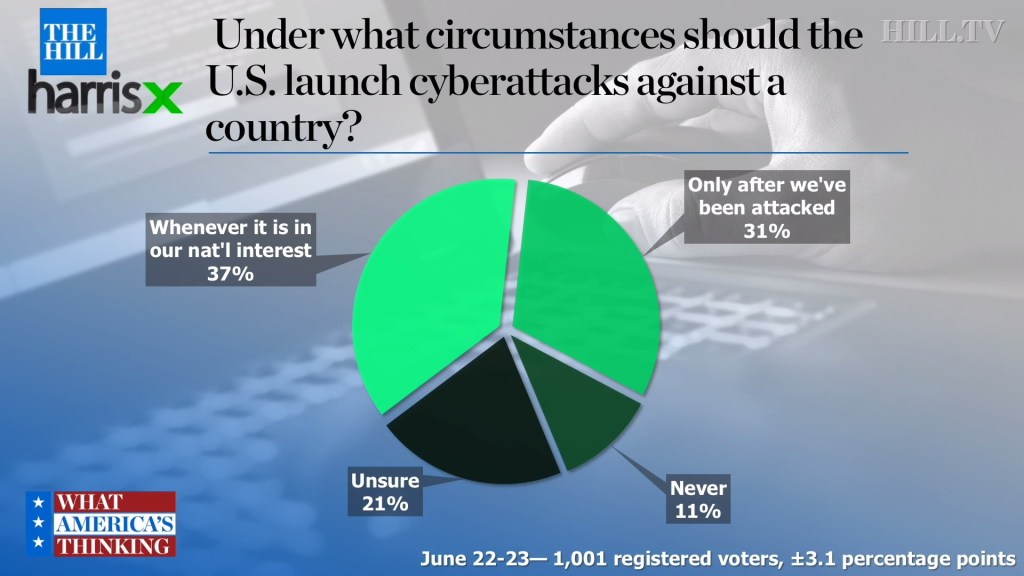Americans are divided on whether it is appropriate for the United States to engage in cyberattacks against other nations, according to a new poll.
In a Hill-HarrisX survey released on Tuesday, 37 percent of registered voters said they believed that the U.S. should attempt to hack other countries whenever American officials deemed it necessary to the national interest.
 Thirty-one percent said they believed the U.S. should engage in cyberattacks only in response to attacks by other countries while 11 percent said the U.S. should never attempt to hack other nations.
Thirty-one percent said they believed the U.S. should engage in cyberattacks only in response to attacks by other countries while 11 percent said the U.S. should never attempt to hack other nations.
Twenty-one percent of respondents said they were unsure.
Voters who identified as Republicans were more likely to say that the U.S. should not wait to be attacked before engaging in cyber warfare, at 46 percent. Thirty-eight percent of independents agreed as did 30 percent of Democrats.
Thirty-three percent of independents and Democrats said the U.S. should only engage in hacking attacks in response to similar intrusions by other countries.
Last week, U.S. Cyber Command personnel reportedly conducted online strikes against an Iranian agency blamed for recent attacks against oil tankers in the Gulf of Oman. The cyberattacks against Iran were apparently supposed to be coupled with air strikes against Iranian targets but President Trump announced on Twitter that he decided to cancel the strikes at the last minute.
Recent news reports have revealed that U.S. Cyber Command has also been attempting to infiltrate Russia’s electrical grid system in response to similar alleged attacks by Moscow on America’s power system and Russia’s hacking of numerous Democratic Party officials during the 2016 election. The attacks have reportedly been carried out under the authorization of the Pentagon rather than from Trump in light of a little-noticed provision of the last year’s defense appropriations bill.
The Hill-HarrisX poll was conducted online among a statistically representative panel of 1,001 registered voters with a sampling margin of error of 3.1 percentage points and a confidence level of 95 percent.
—Matthew Sheffield
Copyright 2023 Nexstar Media Inc. All rights reserved. This material may not be published, broadcast, rewritten, or redistributed.
